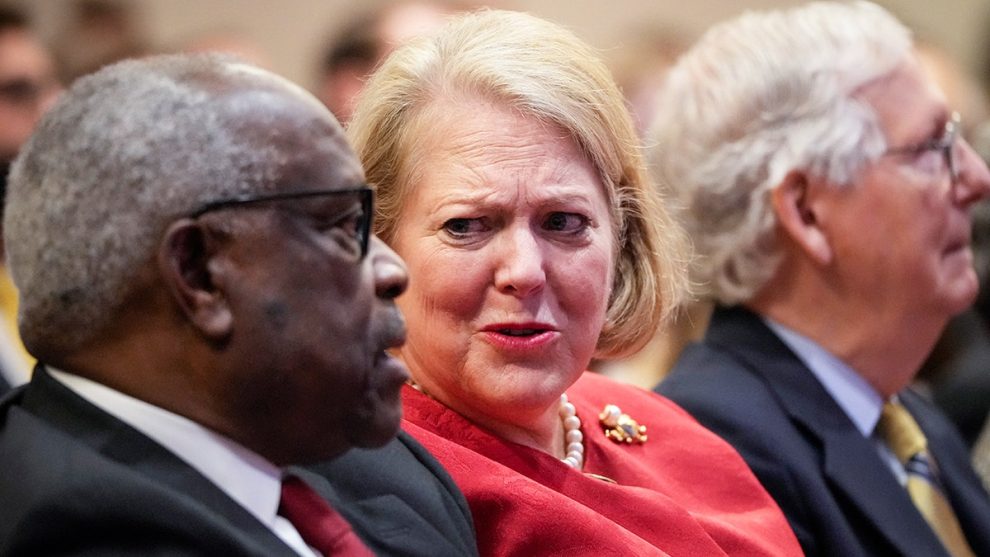House and Senate Democrats this week introduced a bill that would force the Supreme Court to adopt a code of conduct for justices, a step they say is needed to restore trust in the conservative majority court that has eroded because of recent Republican actions.
“The word unprecedented is starting to lose its meaning as we see more and more questionable behavior from justices,” said Rep. Hank Johnson, D-Ga. “And public trust and confidence in the Supreme Court is at an all-time low.”
Another Democratic sponsor, Rep. David Cicilline of Rhode Island, pinned that eroding trust on a series of Republican actions and decisions over the last few years, some of which helped the GOP secure a 6-3 conservative majority on the court.
FOUR SUPREME COURT JUSTICES ABSENT FROM BIDEN’S STATE OF THE UNION
“This loss of trust didn’t happen overnight but has grown out of an increasingly partisan confirmation process that started with Mitch McConnell refusing to give Merrick Garland a hearing or a vote, extends to the clear conflict of interest posed by Ginni Thomas’s work and advocacy and includes last year’s leak of the extremist anti-choice draft opinion,” Cicilline said.
In 2016, with President Obama in the White House and after Justice Antonin Scalia’s death, Senate Majority Leader McConnell, R-Ky., argued that the Senate almost never filled Supreme Court vacancies during election years. McConnell refused to move Obama’s nominee, Merrick Garland, which allowed incoming President Trump to fill that seat and two others during his presidency.
SUPREME COURT LEAKERS BANNED FOR LIFE, FINED $5,000 UNDER GOP BILL
Cicilline’s mention of Ginni Thomas, Justice Clarence Thomas’s wife, is an apparent reference to the discovery that she sent texts urging the Trump administration to fight the results of the 2020 election. Thomas later told the House Jan. 6 Committee she regretted sending those texts, but Democrats have argued Justice Thomas should recuse himself from election-related cases.
Some polls have shown a drop in trust among voters in the Supreme Court as it has grown more conservative and released rules such as last year’s decision to overturn Roe v. Wade and leave it to states to regulate abortion.
The Supreme Court Ethics, Recusal, and Transparency Act, or the SCRET Act, seeks to address this broad set of issues that have been raised mostly by Democrats.
It would require the court to adopt a code of ethics and publish it online and would put in place detailed standards that outline when a judge must recuse himself or herself from cases. For example, recusal would be required in cases involving parties that pushed to confirm a justice and if the justice, a spouse or minor child received income, gifts or other considerations within the last six years.
It would also impose a “clear duty for the judge/justice to know” when they or their family stands to gain financially from a case that’s before them.
A Senate cosponsor of the bill, Sen. Sheldon Whitehouse, D-R.I., said these and other changes in the bill would help assure people there are checks in place against the “special interests … spending millions to try to rig the judiciary in their favor.”
Rep. Jerrold Nadler, D-N.Y., added that the possibility of justices being influenced by lobbyists at social engagements is another reason for Congress to step in and require a code of conduct.
“Recent events at the court — whether it be the unprecedented leak of a draft opinion, speeches given at closed-door events with parties to ongoing cases in front of the court or public appearances with political figures — all point to the need for a defined code of ethics,” he said.
























